Wrinkle Treatment in Tunisia
Search and Compare the Best Clinics and Doctors at the Lowest Prices for Wrinkle Treatment in Tunisia

Find the best clinics for Wrinkle Treatment in Tunisia
With Medijump you can browse 7 facilities offering Wrinkle Treatment procedures in Tunisia. The cheapest price available is $256 in Monastir. And for the cheapest price globally, prices start from $53 in Thailand.
Wrinkle Treatment in Monastir
Price: $ 256
Wrinkle Treatment in Mahdia
Price: $ 1,067
Thailand offers the best prices Worldwide
Price: $ 53
From 4 verified reviews
Samir Derradji, 18 March 2018
Hello I follow sick dalger Algeria I ask you a preforma for an opairation on the colon .Thank you
From 11 verified reviews
Craig Mills, 30 July 2019
Excellent private health care looked after my soon after he drowned in sahara beach hotel this month would definatly recommend being cared for there staff were amazing
From 37 verified reviews
Saoussen Saidani, 13 June 2020
My 12 year old daughter Lina has had surgery Pancreas tumorHeavy Operation which went very wellI thank all the staff of the Pasteur clinic for their hospitality and their hygiene ...I thank the doctors who attended the operation and in particular the surgeonAYADI Sofiene who accompanied us from the start for his professionalism as well as DR Walid Miraoui. The discovery of this tumor is done in a very short time a week to manage allThe support of Surgeon Ayadi Sofiene was really perfect as a parent we were reassured and above all in confidence.And especially I thank them for the moral support of My Daughter Lina who kept the smile until the end and who It is found in Total confidenceThank you so much for saving our childMr er Mrs Saidani
From 11 verified reviews
Toumi Mondher, 02 April 2019
The Department of Extraction and Billing at the Center of Imaging and Radiology, two patients, treated me with a reputation as a Tunisian clinic, and I bear the responsibility to speak this
From 9 verified reviews
Ibtyhel Ben bassine, 19 April 2019
I slept my little girl on Thursday, March 8, 2018, was at Top, my gygy, the nurses .... they put me in a calm and clean environment with a service of excellence .. thank you prts and especially pr Dr. hichem
Clinique Taoufik, can be found in Boulevard Mohamed Bouazizi, Tunis, Tunisia and offers its patients Wrinkle Treatment procedures as well as 225 other procedures, across 24 different procedure categories. At present, there is no pricing information for Wrinkle Treatment procedures at Clinique Taoufik. The pricing information is quite specialised, so it's only available on request, and the average price is around ฿23,800. Many medical professionals work at the Clinic, with 10 in total, and Clinique Taoufik is accredited by just one known accreditations institute, ISO 9001:2008
Clinic Apollon, can be found in Boulevard Mohamed Bouazizi, Tunis, Tunisia and offers its patients Wrinkle Treatment procedures as well as 90 other procedures, across 1 different procedure categories. At present, there is no pricing information for Wrinkle Treatment procedures at Clinic Apollon. The pricing information is quite specialised, so it's only available on request, and the average price is around $661. A small team of medical professionals undertake all procedures at the Clinic, with 2 in total, and Clinic Apollon is not accredited by any recognised accreditations institutions.
- Home
- Tunisia
Compare Before & After Photos of _procedure_photos.phpWrinkle Treatment
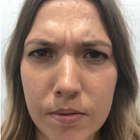
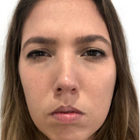
Front view
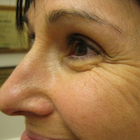
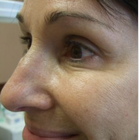
Half-side view
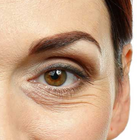
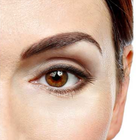
Front view
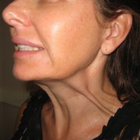
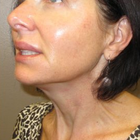
Half-side view
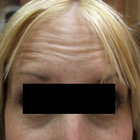
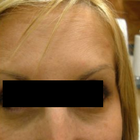
Front view
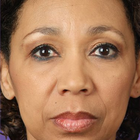
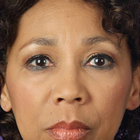
Front view
WHY US?
At Medijump, we're making medical easy. You can search, compare, discuss, and book your medical all in one place. We open the door to the best medical providers worldwide, saving you time and energy along the way, and it's all for FREE, no hidden fees, and no price markups guaranteed. So what are you waiting for?

Free

Best Price

Widest Selection

Risk-Free
What you need to know about Wrinkle Treatment in Tunisia
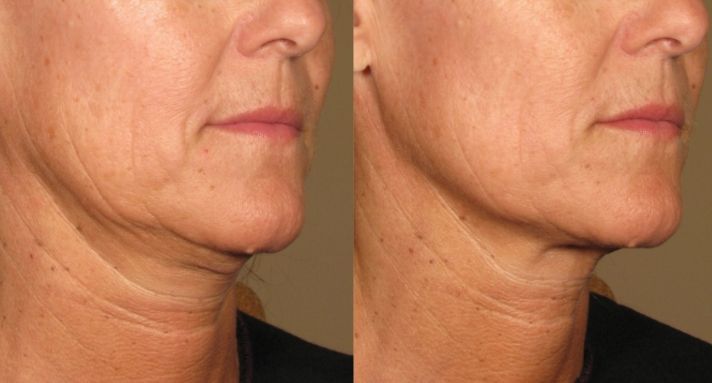
Ultherapy is an FDA-approved non-invasive skin tightening treatment. Known as the non-surgical alternative to facelift surgery, Ultherapy uses a focused ultrasound beam to boost collagen production in the deeper layers of your skin. Collagen is a natural protein that comes in numerous different types. It gives firmness and tightness to your skin. As we grow old, collagen loses its strength and firmness and shows laxity. This procedure gives collagen its strength back.
While a facelift offers more obvious results, it leaves scars and has other associated risks such as nerve damage and clot formation. Ultherapy, on the other hand, requires plenty of time to make its effects visible. Also, more sessions are needed to maintain its effects. It strengthens the loose skin of your face and neck and nullifies the effects of ageing on your face. It has the advantage that there is no downtime for it. You can apply makeup immediately after the procedure. This procedure needs to be repeated every six months or a year.
Ultherapy tightens and strengthens your loose skin without giving incisions and stitches. Instead, a focused ultrasound beam is used to lift your skin. Before going through the therapy, you have a lower eyebrow line, droopy lower eyelid, flat saggy cheeks, and loose skin of the neck. After Ultherapy, your skin looks glowing and rejuvenated, cheeks look healthy and plumped, and eyelids look lifted.
What does a Wrinkle Treatment Procedure Involve?
The procedure begins with cleaning your skin with an alcohol swab to kill any germs present at the spot. A specialized gel is applied to your skin. The focused ultrasound beam is used to produce thermal effects in the deeper layers of skin. The device is pressed firmly on to the skin of areas that needs strengthening. This induces new collagen production in these layers and gives firmness to the previous one. Ultrasound rays are applied over the areas where skin tightening is intended, such as the face and the neck. The time of procedure varies with the areas which are to be treated. It produces thermal effects which can be the cause of discomfort during the process. It lasts for a small period of time when the energy is being delivered into skin layers. This slight discomfort is a sign that the collagen-boosting process has been started.
How Long Should I Stay in Tunisia for a Wrinkle Treatment Procedure?
Ultherapy takes 1 to 1.5 hours or more depending upon the dimensions of the area which is being treated. Since it is an outpatient procedure, you can leave for home on the same day of the treatment. However, you should plan to stay in Tunisia for at least 5 days after your procedure. This will allow for the initial recovery and follow-up check-ups. Slight swelling and discomfort are normal during your stay. However, if it aggravates, there might be something wrong. Your health conditions are monitored during this duration.
What's the Recovery Time for Wrinkle Treatment Procedures in Tunisia?
As there is no downtime, you need not take any day off from work. You can get back to work immediately after the therapy. Minimal bruising is reported at the sites of Ultherapy where bones are present. This discomfort is for a small period of time. There might be tenderness and swelling in your skin which can last for one month after the procedure. 3 to 6 months are required for the results to become evident. Keep in mind that everyone continues to age and no process or treatment can stop aging. Therefore, the effects of Ultherapy subsides after a few years. Touch up treatments help to maintain its effects.
What sort of Aftercare is Required for Wrinkle Treatment Procedures in Tunisia?
After going through Ultherapy, take care of the following points to look after you:
- Avoid contact with direct sunlight for 2 to 3 months after this therapy. At the first place do not go outside in day time. If it is necessary, wear a strong sunscreen to protect your skin from harmful rays of light.
- Do not apply any product on your skin which can cause allergy or irritation.
- Use icepacks to ease you from itching and swelling. They are very effective in reducing redness.
- Do not massage and rub your skin for at least 1 to 2 weeks. It can aggravate redness and irritation in your skin.
- Cover yourself properly when going out after the procedure.
- Moisturize your skin twice or thrice a day. Use a moisturizer prescribed by your doctor.
What's the Success Rate of Wrinkle Treatment Procedures in Tunisia?
This therapy is almost always successful. Results vary and their time of appearance varies. Some people show more positive results while others show a moderate difference in their physical appearance. But it works on all. According to a study, 65% of the patients reported improvement in their skin quality after 2 to 8 months. While 67% seemed very satisfied with the results after only 3 months. The success of Ultherapy depends upon your genes and other factors too.
Are there Alternatives to Wrinkle Treatment Procedures in Tunisia?
The following are some alternatives to Ultherapy:
- Microcurrent facelift: this involves electrical stimulation of your tissues, skin, and muscles to increase their tone and impart a rejuvenating effect. Also, electrical current boosts collagen production and increases blood circulation in your body. It shows immediate results which can last for 48 hours only. You can opt for it for special events.
- Dermal fillers: also known as a liquid facelift, dermal fillers such as Sculptra, Juvederm, and Restylane are injected into your skin to give your facial features a lift. It treats wrinkles and aging lines on your skin. Each dermal filler works differently in different parts of your body.
- Laser facelift: laser light is used to stimulate inner layers of your skin to boost collagen production. This requires 30 minutes with no downtime.
All the techniques mentioned above are minimally invasive with almost no downtime, pain and incisions.
Overall, you will look younger than your actual age. But its effects last for only 12 to 15 months, after which you will need touch ups.
Whilst the information presented here has been accurately sourced and verified by a medical professional for its accuracy, it is still advised to consult with your doctor before pursuing a medical treatment at one of the listed medical providers
No Time?
Tell us what you're looking for and we'll reachout to the top clinics all at once
Enquire Now

Popular Procedures in Tunisia
Prices Start From $111

Prices Start From $16

Prices Start From $28

Prices Start From $5

Recommended Medical Centers in Tunisia for Wrinkle Treatment

- Interpreter services
- Translation service
- Religious facilities
- Medical records transfer
- Medical travel insurance
- Health insurance coordination
- TV in the room
- Safe in the room
- Phone in the room
- Private rooms for patients available

- Interpreter services
- Translation service
- Religious facilities
- Medical records transfer
- Medical travel insurance
- Health insurance coordination
- TV in the room
- Safe in the room
- Phone in the room
- Private rooms for patients available

- Interpreter services
- Translation service
- Religious facilities
- Medical records transfer
- Medical travel insurance
- Health insurance coordination
- TV in the room
- Safe in the room
- Phone in the room
- Private rooms for patients available

- Interpreter services
- Translation service
- Religious facilities
- Medical records transfer
- Medical travel insurance
- Health insurance coordination
- TV in the room
- Safe in the room
- Phone in the room
- Private rooms for patients available

- Interpreter services
- Translation service
- Religious facilities
- Medical records transfer
- Medical travel insurance
- Health insurance coordination
- TV in the room
- Safe in the room
- Phone in the room
- Private rooms for patients available

- Interpreter services
- Translation service
- Religious facilities
- Medical records transfer
- Medical travel insurance
- Health insurance coordination
- TV in the room
- Safe in the room
- Phone in the room
- Private rooms for patients available

- Interpreter services
- Translation service
- Religious facilities
- Medical records transfer
- Medical travel insurance
- Health insurance coordination
- TV in the room
- Safe in the room
- Phone in the room
- Private rooms for patients available

- Interpreter services
- Translation service
- Religious facilities
- Medical records transfer
- Medical travel insurance
- Health insurance coordination
- TV in the room
- Safe in the room
- Phone in the room
- Private rooms for patients available

- Interpreter services
- Translation service
- Religious facilities
- Medical records transfer
- Medical travel insurance
- Health insurance coordination
- TV in the room
- Safe in the room
- Phone in the room
- Private rooms for patients available

- Interpreter services
- Translation service
- Religious facilities
- Medical records transfer
- Medical travel insurance
- Health insurance coordination
- TV in the room
- Safe in the room
- Phone in the room
- Private rooms for patients available
Wrinkle Treatment in and around Tunisia
About Tunisia
Tunisia is one of the few countries which can cater to everyone and it manages to combine climate, golden beaches, history, and shopping for an “all-around” experience. It has a high standard of healthcare and an excellent reputation for cosmetic surgery. Cosmetic and plastic surgeons are regulated by the Tunisian Ministry of Health and the private clinics have state-of-the-art equipment and English-speaking staff. Tunisia welcomes an ever-increasing number of medical tourists each year, many of whom travel for Wrinkle Treatment procedures. Medical Tourists travel from all across the globe, particularly from Europe and neighboring African countries with an inferior healthcare system. Popular medical tourism destinations outside of the capital, Tunis, include Sousse and Mahdia
Popular Parts of Tunisia
- Tunis, the country’s capital, is overflowing with a history that dates from the 4th Century BC. The city is divided into two parts, the old city known as the medina and the new city (or Ville nouvelle in French). Many tourists visit Tunis to see the Archaeological Site of Carthage which is also a UNESCO World Heritage Site. The beautiful Islamic architecture in medina also attracts many tourists to the city.
- Tozeur is known as a home to an enchanting desert oasis, which was a place to rest and refuel for caravans crossing the Sahara. Another main attraction in the city is the medina, where tourists can find lines of beautiful brick-patterned traditional dessert houses. Chott el Djerid, Sahara’s largest salt pan, is a popular day-trip destination.
- Sousse is located on the coast of the Mediterranean Sea. It offers good beaches with a clear blue sea. The city has been fought over by the Romans, Arabs, and Europeans, giving it a colorful history and culture. Sousse Archeological Museum is one of the most visited sites in the country; it has the second largest collection of mosaics in the world.
- Hammamet is the country’s original tourism resort. The city has beautiful gardens filled with oranges, lemons, and other citrus plants. It also has wonderful sandy beaches with crystal clear water. Just like any other city in Tunisia, this city is also brimming with interesting histories. Sites such as The Gafsa Museum and Bardo Museum will give insights about the Islamic faith and culture.
- Douz, also known as “the gateway to the Sahara.” Tourists who want to experience the Sahara Desert come to this city. Take a camel trip or a 4-wheel-drive into the Sahara or see the Museum of the Sahara that has an interesting collection portraying traditional Saharan life.
Weather and Climate in Tunisia
The North of Tunisia has a subtropical Mediterranean climate with mild rainy winters and hot summers. The South and inland areas have a tropical desert climate.
The weather is relatively comfortable throughout the year. Summer starts in June and lasts until August. The average temperature is between 28 °C to 32 °C with July and August being the hottest months. The heat is not as bad on the coast because of the seaside breeze. Be aware that July to September is the jellyfish season.
The heat decreases in autumn and the weather is somewhat more comfortable. There are occasional rain showers in September. The temperature in October can be like summer during day time, but cold at night. October has more rain than September. The season lasts for three months from September to November with an average temperature of around 19 °C to 29 °C.
The weather in winter can be uncertain. The average temperature is between 16 °C and 18 °C, but it can drop to 7 °C at night and below 0 °C in highlands and deserts and a clear sky is rare during this season.
Spring comes in March and the temperature can rise to 20 °C. Mornings and nights are cold; there is still a high probability of rains and thunderstorms at the end of this season.
Getting Around in Tunisia
Tunisia has several international airports. The main airport is Tunic-Carthage International Airport. It has international connections with major European countries and the Middle East. The airport is the hub for Tunisair, Tunisair Express, and Nouvelair. Other airports that have international flights are Enfidha-Hammamet, Monastir Habib Bourguiba, Djerba-Zarzis, and Tabarka-Aïn Draham.
Taxis and buses are available to get to the city center from Tunis Airport. The SNT bus line departs every 30 minutes from the airport, the ticket costs less than 1 TND. There is also the TUT bus which departs every 15 minutes and is more luxurious and expensive.
Airport taxis are available at the airport taxi stand and are usually metered. Always make sure that the driver turns the meter on before riding the taxis. A journey to the city should cost around 5 TND. An extra cost will be added if you have baggage.
Getting around in Tunisia can be done by several transportation modes. Tunisair Express provides domestic flights between Tunis, Tozeur, Djerba, and Gabes. The Train is also available and the national train company in the country is SNCFT that runs modern and comfortable trains from Tunis to Sousse, Sfax, and Monastir. There are three classes of service that tourists can choose. The fare from Tunis to Sousse is between 6 to 10 TND. The long-distance bus is an economical option to travel between big cities such as Tunis, Hammamet, and Nabeul. The buses usually depart every 30 minutes.
Tourist Visas in Tunisia
Citizens of 97 countries (including Australia, China Singapore, the United States, and Russia) can visit and stay in Tunisia for up to 90 days without a visa. Other nationalities are advised to check with their local Tunisia embassy. Tunisia provides an online visa application for nationalities that needs a visa to enter. The eVisa will simplify the process of obtaining travel authorization to enter the country.
Additional Information
-
Local Currency: the local currency is the Tunisian dinar (TND). 1 USD converts to 2.61 TND.
-
Money & Payments: ATMs can be found in most cities and in all tourist areas. Many ATMs have withdrawal limits of 400 TND. Credit cards (MasterCard and Visa) are accepted in major cities and tourist areas. They can be used for shops, car hire, or top-end accommodation. Always make sure to carry cash if you want to travel outside major cities. Tipping is not necessary but will be appreciated.
-
Local Language: Arabic is the official language of Tunisia. French is very common due to the country’s former status as a French protectorate. English is still very limited except in the tourist areas and expensive hotels.
-
Local Culture and Religion: Islam is the major religion with 98% of the population identified as Muslim. There is a small group of Christian and Jews. Since most of the population is Muslim, always remember that the dress code is important in Tunisia.
-
Public Holidays: Tunisia celebrates major Islam holidays. The country hosts several annual festivals throughout the year such as The International Festival of the Sahara, Yasmine Hammamet Festival, and the International Festival of Carthage.
Popular Searches
- Plastic Surgery in Thailand
- Dental Implants in Thailand
- Hair Transplant in Thailand
- Breast Augmentation Thailand
- Gastric Sleeve in Thailand
- Gender Reassignment Surgery in Thailand
- Laser Hair Removal in Bangkok
- Botox in Bangkok
- Dermatology in Bangkok
- Breast Augmentation in Bangkok
- Coolsculpting in Bangkok
- Veneers in Turkey
- Hair Transplant in Turkey
- Rhinoplasty in Turkey
- Stem Cell Therapy in Mexico
- Rhinoplasty in Mexico
- Liposuction in Mexico
- Coolsculpting in Tijuana
- Rhinoplasty in Korea
- Scar Removal in Korea
- Gastric Sleeve in Turkey
- Bone Marrow Transplant in India
- Invisalign in Malaysia
- Plastic Surgery in the Dominican Republic
- Tummy Tuck in the Dominican Republic
- Plastic and Cosmetic Surgery in Poland
- Rhinoplasty in Poland
- Hair Implant in Poland
- Dental Implants in Poland
- IVF in Turkey






